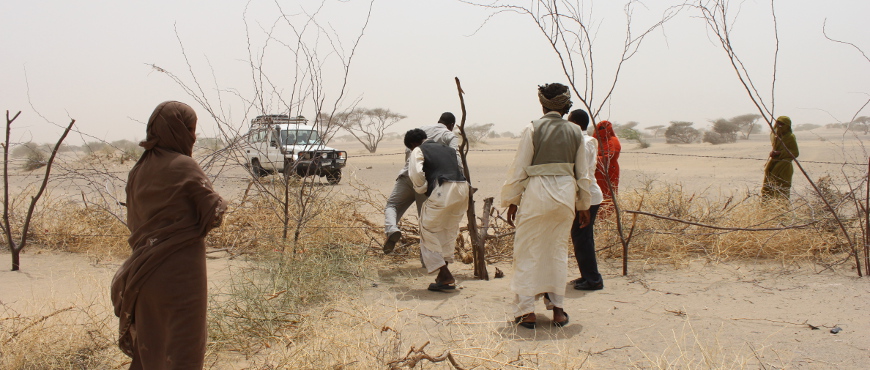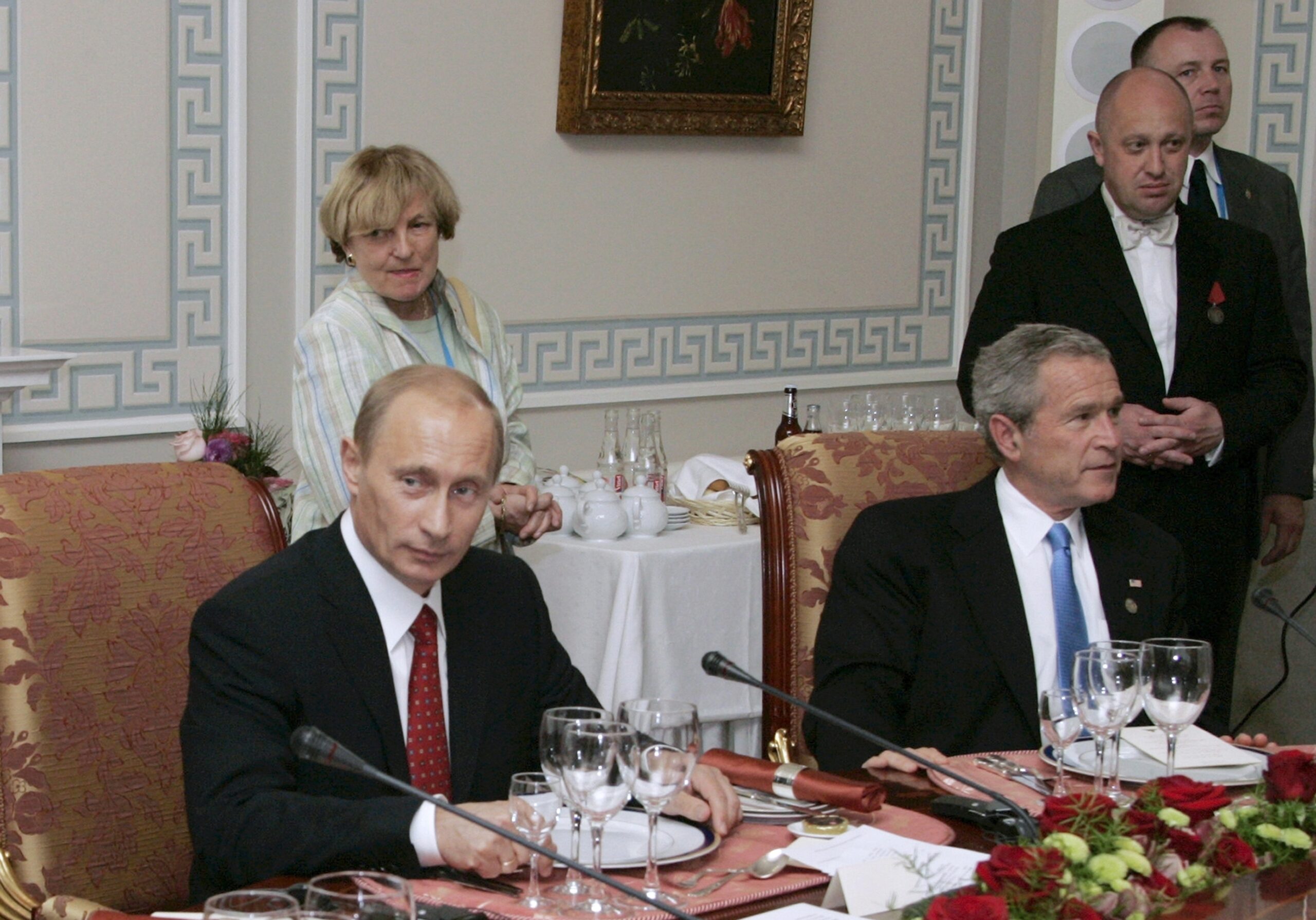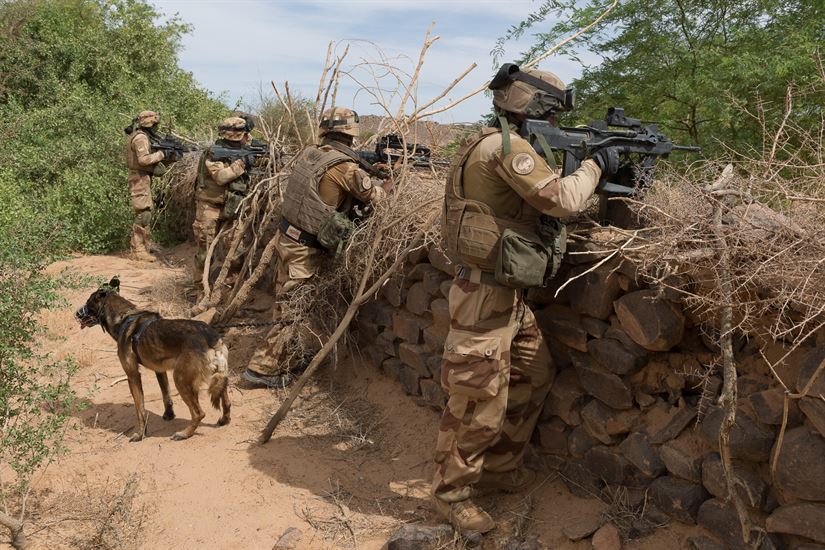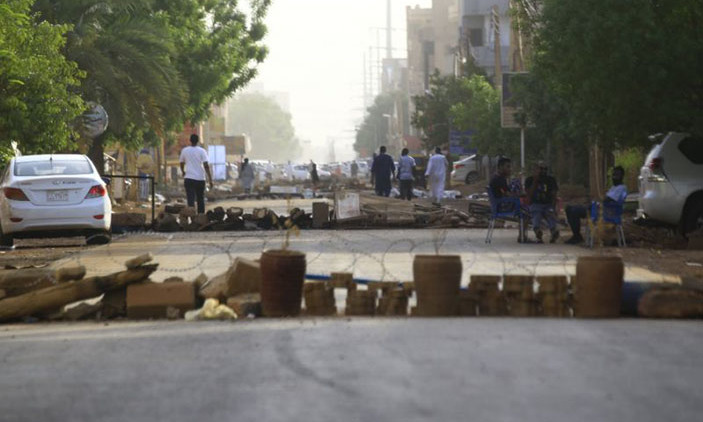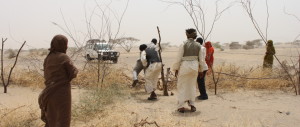 While South Sudan is witnessing a rebellion and possibly the onset of a civil war, Western nations have airlifted their citizens from Africa’s youngest country. At the same time, French soldiers are patrolling the streets of the Central African Republic (CAR) along with African peacekeepers flown in from Burundi and Cameroon among others. 3700 African troops are trying to prevent the Central African Republic from falling apart altogether, while further west in Mali even more forces from the African Union are trying to do just the same.
While South Sudan is witnessing a rebellion and possibly the onset of a civil war, Western nations have airlifted their citizens from Africa’s youngest country. At the same time, French soldiers are patrolling the streets of the Central African Republic (CAR) along with African peacekeepers flown in from Burundi and Cameroon among others. 3700 African troops are trying to prevent the Central African Republic from falling apart altogether, while further west in Mali even more forces from the African Union are trying to do just the same.
In the Central African Republic, the situation deteriorated rather quickly and unexpectedly: of the 4.5 million people living in the CAR, close to 640.000 have been displaced. Worse still, the Central African Republic has seen peacekeeping forces from Chad pitted against demonstrators and Burundian peacekeepers that have left forty wounded. MISCA, the African Union force deployed to the Central African Republic, has pulled the Chadian troops from the capital Bangui and sent them to the north of the country. Christian protesters accused the Chadian soldiers of siding with the Seleka rebels, which are by and large Muslim. All of this demonstrates one thing: The Sahelian states are far weaker than expected and, as a result, 2013 witnessed three states in which the processes of state failure gained momentum. One is therefore led to wonder: how will the international community come together to respond to the further unravelling of the Sahel?
The big question is, can the international community and the Europeans in particular turn the situation around in 2014? So far, the response has largely followed similar lines. In former French colonies, Paris is still willing to bear the brunt of the burden and though its readiness is a leftover from its colonial past, the truth is that there were little alternatives available had the French not intervened. It is striking, however, that the French intervention usually clears the way for some African force to take over, which provides the French government with an exit strategy, even though the African Union is then left to wonder how to exit these conflicts. But neither in Mali nor in the Central African Republic is a long-term strategy in the making. The Tuareg tribes in Mali still feel marginalised and in Bangui ethnic and religious clashes dominate the conflict. This would render any conflict difficult to solve, but both the French and their European and African partners seem to think that some sort of an interim government will provide just enough stability for a long-term solution to play out. Though, in fact, there is a precious little effort put into such deliberations.
It comes as no surprise then that of all French allies, only the United States have thus far been willing to step in in a meaningful way. Washington has offered African nations its airlift capabilities, training for peacekeeping forces that are about to rotate into the African Union mission, and substantial support in equipment for the French-led forces. Despite all the notions of leading from behind, Washington is still the only power to contribute to such missions substantially, at least more than Paris’ closest European allies. Still, clashes in the Central African Republic, Mali and South Sudan continue despite the presence of European and African troops. CAR president Michel Djotodia, who seized power in a coup some nine months ago, has lost control over most of the country and his former Seleka rebels – now he finds himself still being challenged by other militias, some of whom recently even attacked the presidential palace. The French forces were little deterrent.
It is striking how little the international community and the Europeans in particular have come together in the face of an ever greater challenge posed by the Sahel. Sure enough, as long as the French are volunteering for the heavy lifting, the international community will provide it with legitimacy through the United Nations. But the states in the Maghreb, arguably the neighbourhood most affected, still have found little motivation to come together, despite the threats posed from the implosion of state structures in the Sahel. The African Maghreb Union, founded in 1989, is laying in shatters ever since the last summit the union held in Tunis in 1994. But if the implosion of state structures along its southern periphery cannot bring the states of the Maghreb together, than what can? The West, meanwhile, is still trying to approach the region with a piecemeal strategy that will yield little, if any, dividends in the long run. The beginning of the year would be well spent, if the Europeans were to put their wallet where their mouth is and develop an actual long-term strategy for the Sahel. Otherwise the Europeans will be forced to find a response in Lampedusa and that is almost certainly not a good idea.
